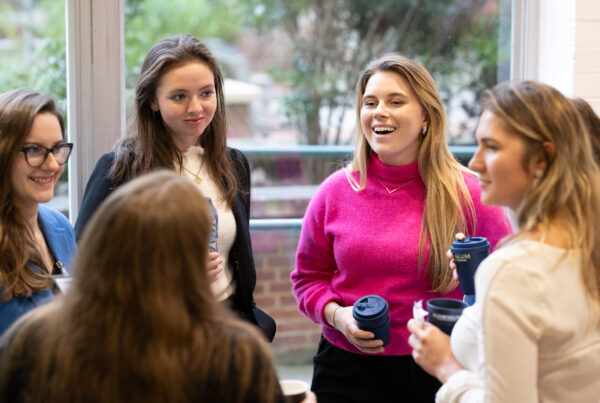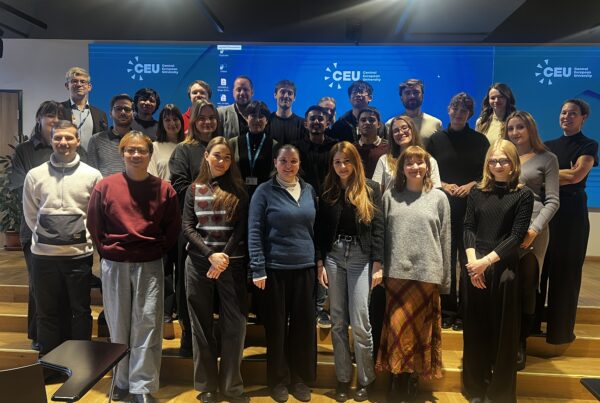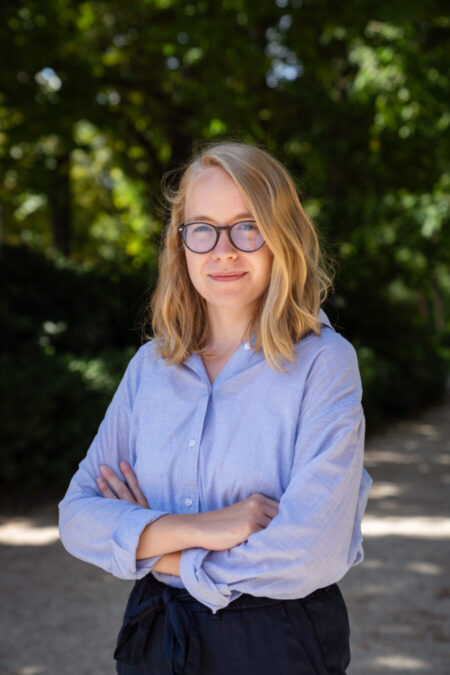
In this interview we talk to Cohort 3 former Scholar, Marie Martine, a DPhil student in Medieval and Modern Languages at University of Oxford about what she has been working on since completing the Scholars’ Programme and ask to reflect on how it affected her research and work.
She tells us more about how studying language can translate into policy work.
Marie was also involved in creating a guide for Early Careers Researchers in languages on how to effectively engage with policy makers.
Please tell us a bit about yourself and the topic of your Doctoral research.
My name is Marie and I just completed my DPhil in Medieval and Modern Languages at the University of Oxford, specialising in French and German. I studied in France, Germany, Scotland, before I came to Oxford for my PhD. Studying at various European universities sparked my interest in European education and cross-cultural exchanges.
My research centres on women writers from France, Germany, and Norway at the end of the nineteenth century. I look at how women writers were in dialogue with naturalism, a European literary movement that aimed to apply scientific methods and theories in fiction. My research aims to combat the myth that nineteenth-century women writers were writing in isolation to instead look at how they interact with the socio-political debates of their time and develop a feminist message through their fiction. My work engages with the fields of gender studies, disability studies, and European literature.
What do you feel was the most important thing you got out of being on the Scholars Programme?
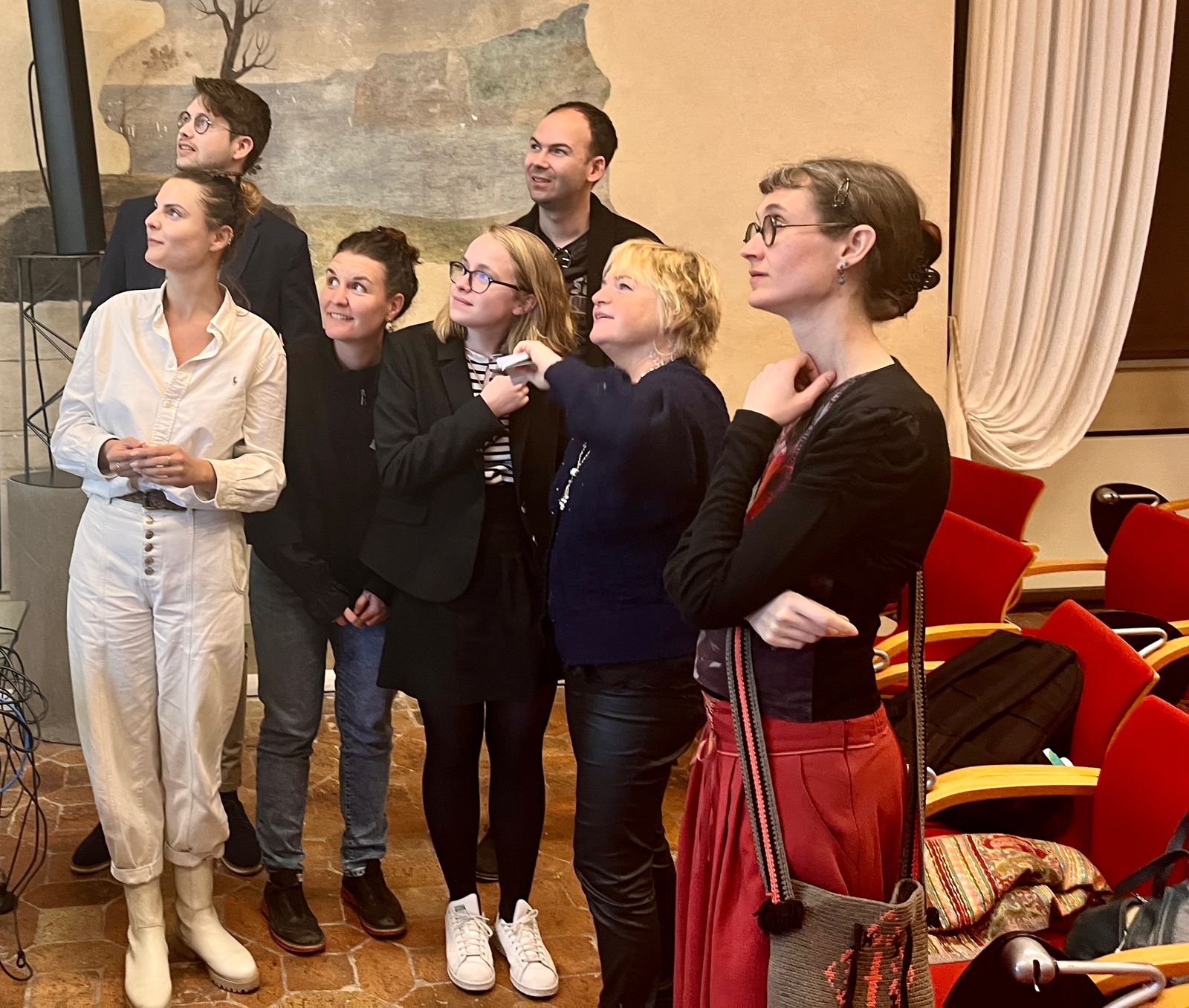
Meeting Kalypso Nicolaidis at the Bologna module with the Level Up group.
The Europaeum Scholars Programme profoundly influenced my academic and personal development. It allowed me to connect my research to the bigger picture and realise what kind of impact I wanted to have in my career. The most formative experience was the group project. With the Level Up group, we designed a method of democratic participation, using gamification and a bottom-up approach to help joint decision-making and public consultation. The group project taught us how to concretely translate research into practical and impactful policy recommendations. After years of working on a niche topic of my own, working with a team was a very welcome change! I learned a lot from connecting with people from different fields, within and beyond my group.
The programme featured incredible speakers and meeting Prof. Kalypso Nicolaidis (European University Institute, Florence School of Transnational Governance) during the Bologna module was a highlight for our group. Kalypso works on democratic participation at the European level and her insights into democratic participation shaped our project.
In a nutshell, I would say that the Scholars Programme taught me to value my own perspective, shaped by my background in literature and languages, while recognising the importance of collaborating with people from different fields to achieve the most meaningful and impactful outcomes.
What possibilities do you see for scholars of modern languages to get involved in policy advising?
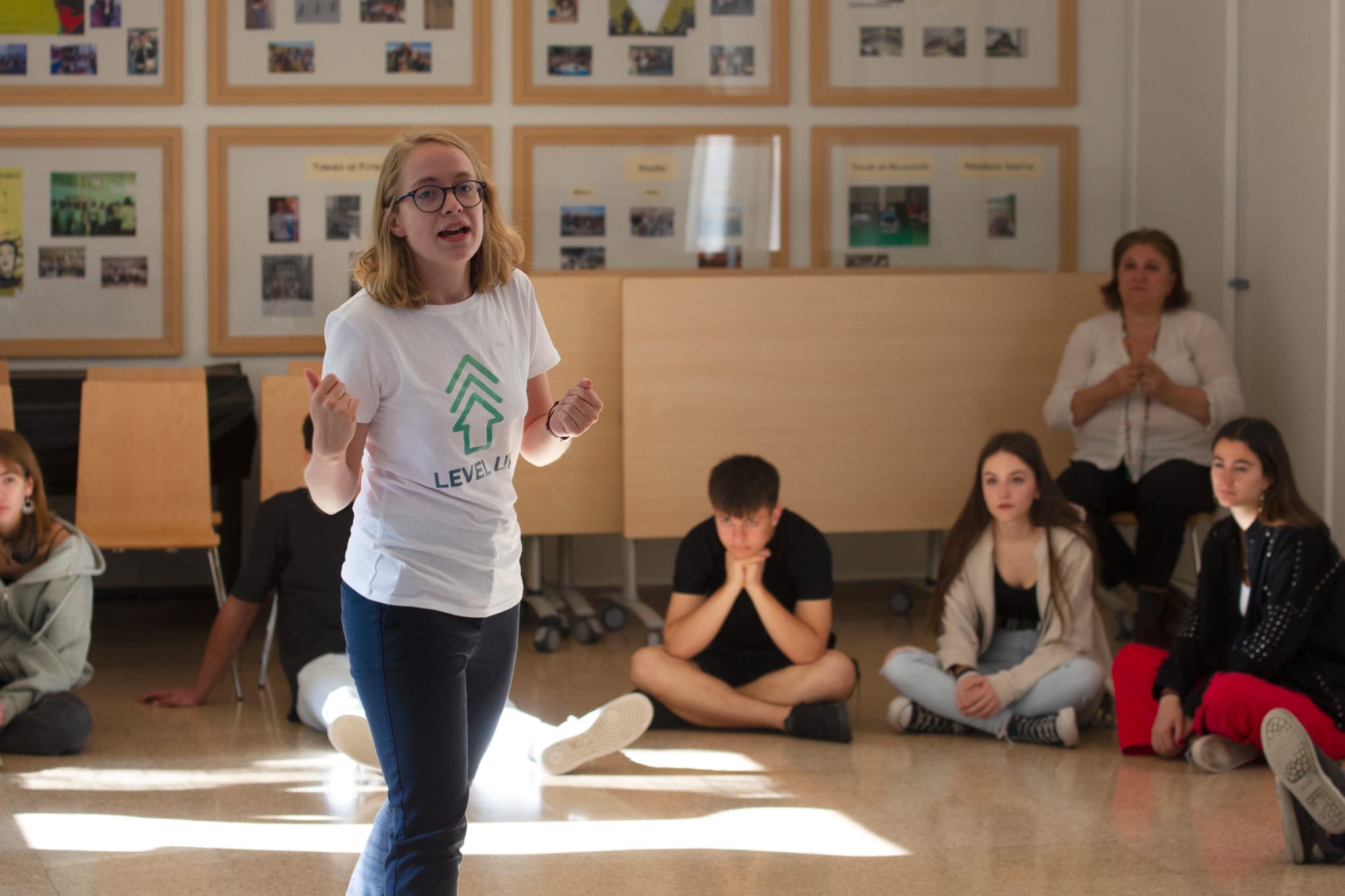
Level Up in action during our pilot project in Madrid where we collaborated with a school and local stakeholders to test our participative toolkit.
As someone with a very literature-heavy background, I did not think I could get involved in policy without getting another degree! The Scholars Programme thankfully proved me wrong. The experience allowed me to strengthen my own perspective and acquire concrete policy and leadership skills. I had the opportunity to use these skills in a project with my faculty, under the direction of Dr Charlotte Ryland (University of Oxford) and in collaboration with the Oxford Policy Engagement Network. We worked on developing policy engagement within the Faculty of Medieval and Modern Languages and wrote a guide for Early Careers Researchers in languages on how to effectively engage with policy makers. We believe that languages researchers can make significant contributions to current policy debates, in education, health and social care, migration, climate change, by using our unique perspective on languages, communication, and culture.
My main advice for scholars of modern languages who are interested in getting involved in the policy world would be to find a strong ‘why’ (how and why can your research contribute to current debates?) and then learn to ‘translate’ your research to make it accessible for a non-specialist audience. From conducting interviews with policy stakeholders, we discovered that there is clear interest in the policy world in working with language researchers, but that we need to find ways to bridge the gap in how we communicate with each other. It is a matter of finding a common language, something I acquired thanks to the Scholars Programme and that I am excited to bring to other projects.

